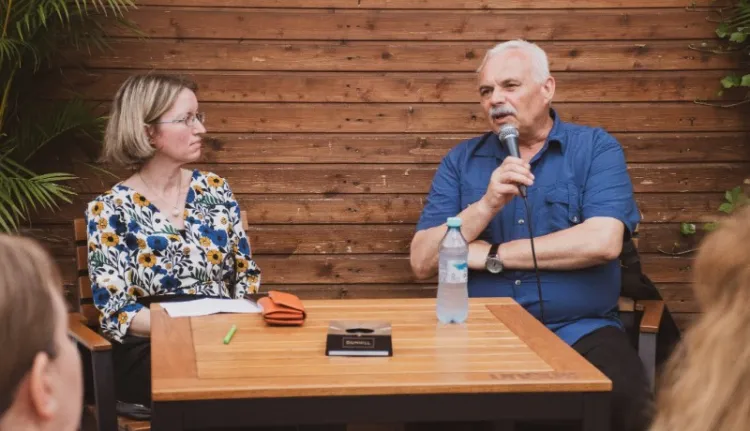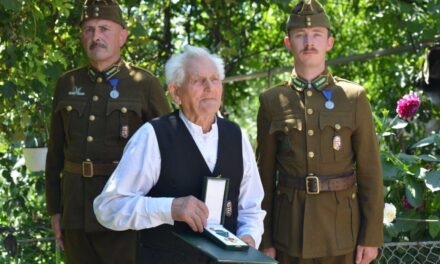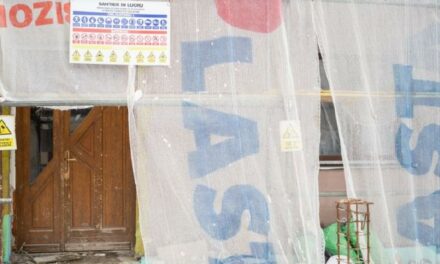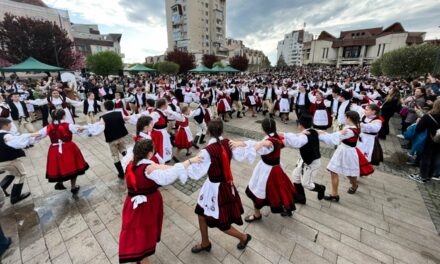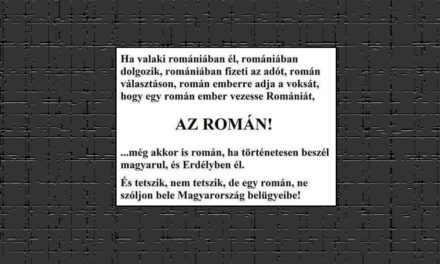Many fled abroad, many are hiding, yet the Hungarian cultural life in Subcarpathia did not stop.
Who would have thought that the war would not only last 1-2 weeks? In comparison, they have been struggling for almost 500 days - this is how Transcarpathian writer, politician, cultural organizer, and historian György Dupka began his report at the discussion organized as part of the Cluj-Napoca Book Week, at the Bulgakov cafe, where Zsuzsa Demeter, the editor of Helikon, asked about their difficulties. He noted that he did not come as a refugee, as those over 60 can cross the borders of Ukraine freely, but conscripted men between the ages of 18 and 60 cannot leave the country, as the conscription is continuous due to the war. Although Dupka is 71 years old, it also happened to him that he had to be certified five times during one of his trips, so much is the hunt for military candidates.
Accordingly, escape practices are becoming more and more diverse:
many conscripted men are forced to hide - there are also acquaintances who haven't gone outside for a year - and many even dye their hair to fall to avoid the attention of the conscription officers.
Fear descended on the landscape, notes Dupka, who says that those who fled the country while they could did not fare well either, since they left their families behind, and if they ventured home, they would immediately be taken to the front as punishment.
War does not rest:
In Ukraine, 500 people die in the fighting every day, and Transcarpathia now has 70 dead every week.
And although they fortunately don't see the war in its physical manifestation, since the fighting is 2,000 kilometers away from them, its effects still extend to everything, including cultural life. Yet they do not give up the fight: "The Muses are not silent in the Carpathian War either",
Együtt , for example, has been published continuously since the outbreak of the war,
even if more people work from abroad via the Internet.
He also touched on the fact that the 150,000 Transcarpathian Hungarians are once again feeling the loss due to the war. Earlier, after the regime change, there was a larger wave of emigration: then at least 15-20 Transcarpathian writers also left the country, and then there was a second such wave around 2001, when the Ukrainian economy was in crisis and many feared for their livelihood. The third large wave of emigration has practically been taking place since 2014, since this conflict started already then, but only last year it turned into a total war.
Even now, the biggest problem is that people have lost their vision of the future,
especially families with young boys: they try to take them out of the country before their 18th birthday.
Another strategy for young men is to flee to universities. For example, 5 former medical students applied to the history department of the University of Ungvár - where he also teaches - recently, because according to the law, those who are still completing their university studies are not sent to the front.
One of Dupka's sons has also become a university student again, the other son works in Budapest, and although he is homesick, he cannot come home, and he is preparing to send his youngest, 9-year-old son to Budapest so that he does not waste his time studying by sitting in the shelter when the air defense sirens go off. they speak up.
The disastrous effects of the language law
By the way, György Dupka was a provincial representative several times, his generation fought for Transcarpathian bilingualism,
however, this was again jeopardized by the new Ukrainian language law.
If they are introduced, they will put the minority culture in a practically impossible situation. For example, the law would also stipulate that if a Hungarian book is published in Ukraine in 500 copies, the same number of copies must also be published in Ukrainian, regardless of whether there are financial resources or demand for it.
All this while Ukraine has not supported the minority culture even a single bit since the regime change,
all their institutions, including their book and magazine publishing, depend on the support of the Hungarian state. Currently, 3-4 newspapers remain from the previous 10-15, and Dupka said: he respects the journalists who "didn't throw in the towel".
Otherwise, the language law would have disastrous consequences in education as well: although Hungarians are considered an indigenous minority, they would only have the opportunity to study in their mother tongue until the high school graduation, while "European minorities" such as the Poles, would only be able to study in grades 1-4. in class.
More than 200,000 Romanians also live in Ukraine, of which around 30,000 live in Subcarpathia.
so now they are trying to unite with the local Romanians, to see if that way, with the support of Hungary and Romania behind them, they can fight for their interests more successfully.
Of course, the war appears in the latest works of Ukrainian artists, and Transcarpathian Hungarians even want to compile an anthology entitled In the Shadow of the War. However, they have to be very careful not to write things in their works that the majority does not like and that can be labeled as anti-Ukraine - last year, for example, Dupka and his wife were forced to talk for about 2 hours with an officer of the Ukrainian secret service, who bluntly told them to "restrain yourself ".
At the same time, Dupka made it clear that they do not represent anything that would endanger Ukraine, since
they condemn the war, they condemn the Russian aggression
- after all, it was not Ukraine that attacked Russia.
György Dupka also explained that he does not agree with knocking down the statues of Pushkin and Tolstoy, as it is not necessary to defend against Russian aggression by destroying universal cultural values, just as he also considers it regrettable that Ukrainian libraries crush Russian books, and the Russian-language materials from the archives of radio and television stations are destroyed.
However, the final word was positive: according to György Dupka, Transcarpathian Hungarians try to persevere despite all the difficulties and face the pressure on them.
We wish them the best of luck!
Featured image: Main Square

